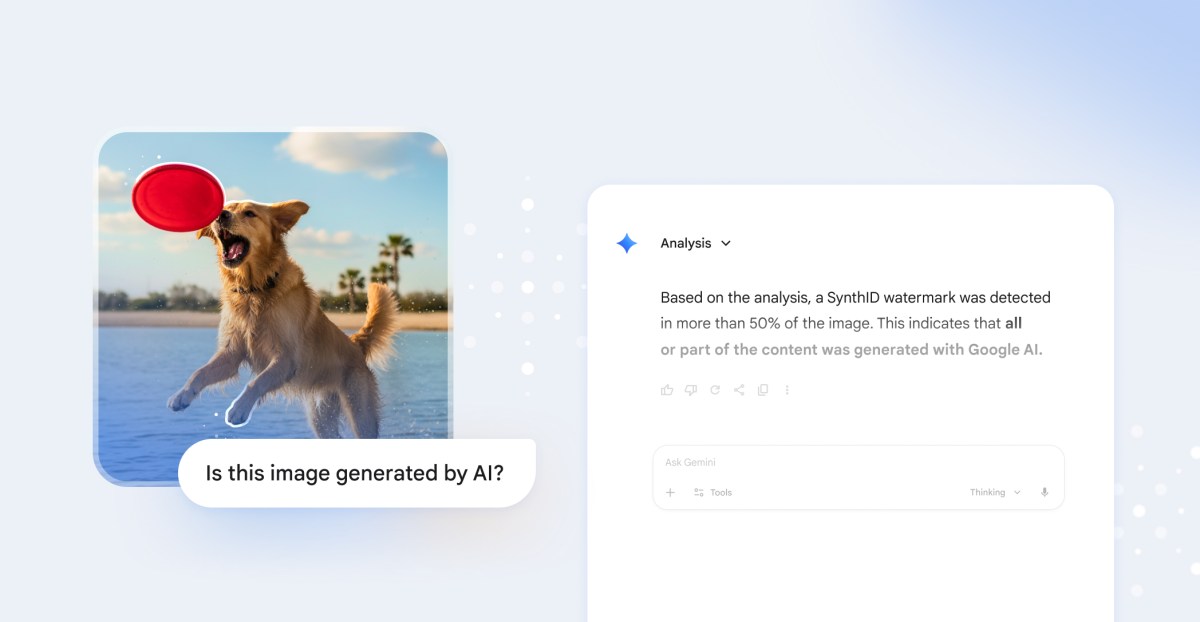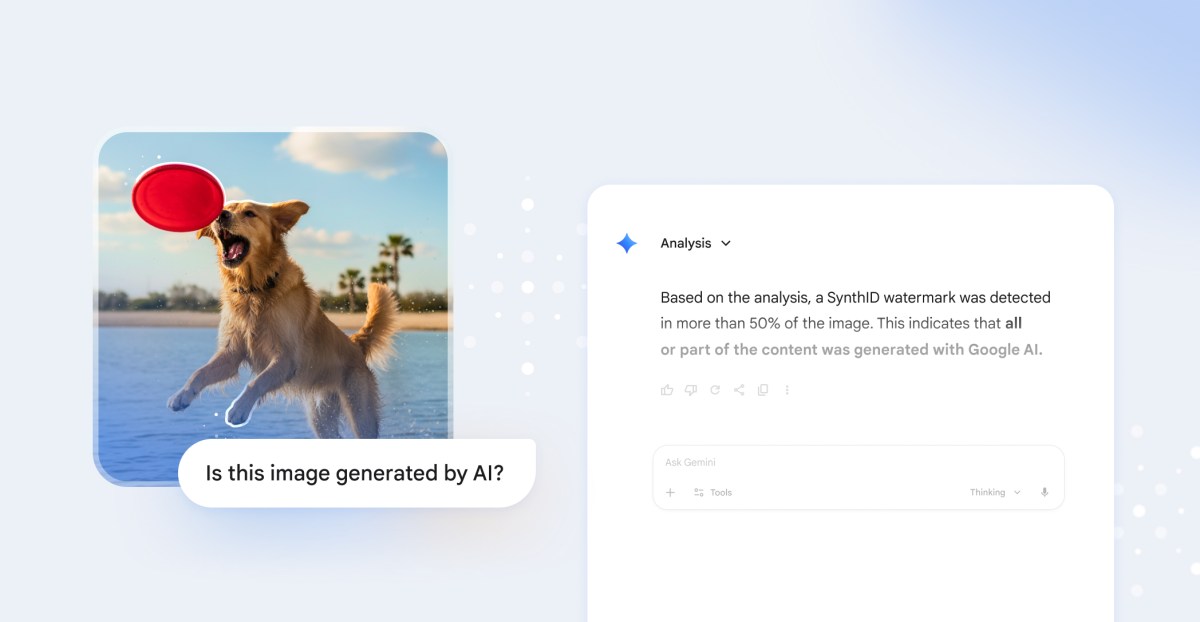Key Points
- Gemini app now lets users ask “Is this AI-generated?” to check images.
- Verification relies on Google’s SynthID invisible watermark.
- Support for video and audio detection is planned for the near future.
- Google aims to adopt industry‑wide C2PA credentials for broader detection.
- Nano Banana Pro model images will include embedded C2PA metadata.
- TikTok will use C2PA metadata for its own AI‑generated content watermarking.

Gemini App Can Identify AI‑Generated Images
Google is making it easier for Gemini users to detect at least some AI‑generated content. Starting today, users can ask Gemini “Is this AI-generated?” and receive a determination about whether an image was created or edited by a Google AI tool. The initial launch is limited to images, and verification is based on SynthID, Google’s own invisible AI watermark.
Future Expansion to Other Media Types
Google says verification of video and audio will come “soon,” and the company intends to expand the functionality beyond the Gemini app, including integration into Search. The longer‑term goal is to support industry‑wide C2PA content credentials, which would allow detection of AI‑generated content from a wider variety of tools and creative software.
Integration of C2PA Metadata
In conjunction with the new detection feature, Google announced that images generated by its Nano Banana Pro model will have C2PA metadata embedded. This marks the second recent development for C2PA, following TikTok’s confirmation that it will use C2PA metadata as part of its own invisible watermarking for AI‑generated content.
Implications for Content Verification
Manual verification in Gemini is a useful step, but Google acknowledges that broader adoption of C2PA credentials and other watermarks like SynthID will only be truly effective when social media platforms improve automatic flagging of AI‑generated content, rather than relying on users to confirm authenticity themselves.
Source: theverge.com
